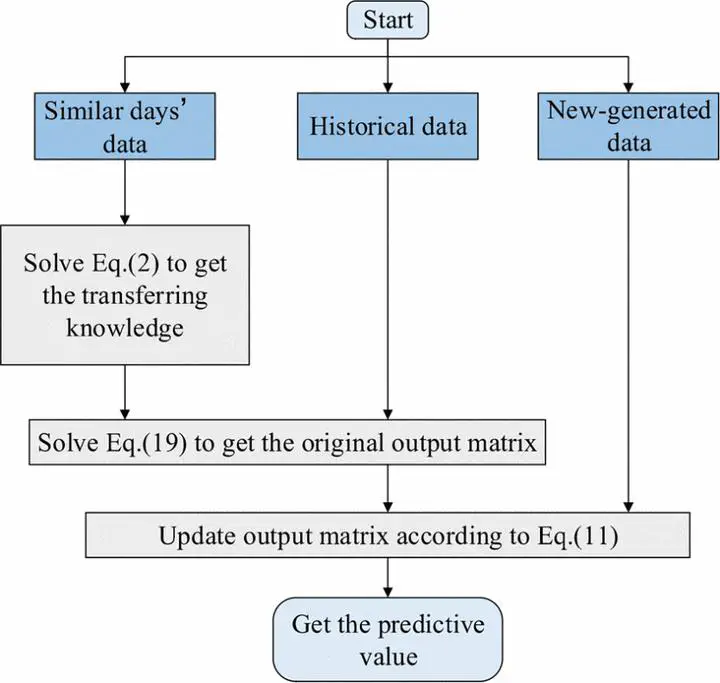TransOS-ELM: A Short-term Photovoltaic Power Forecasting Method based on Transferred Knowledge from Similar Days

摘要
Photovoltaic (PV) power is an important part of renewable energy and has been distributed more and more widely. Due to the characteristics of intermittency and randomness, the accurate forecasting of short-term PV output will ensure secure operation and economic integration of PV power in smart grids. However, previous works on PV power forecasting show a strong dependency on weather conditions in common, that means there exists a sophisticated relationship which is hard to be described quantitatively between various influencing factors and PV power. What we have focused on is to leverage all kinds of dependencies to make up for the deficiency of traditional data-driven methods. In this paper, a hybrid learning model based on Online Sequential Extreme Learning Machine (OS-ELM) associated with transferred knowledge learned from similar days which share similar weather conditions with the target day, abbreviated as TransOS-ELM, is proposed and applied to short-term PV power forecasting problem. This model is able to optimize the prediction results according to the weather condition of the target day with the knowledge learned from samples of similar days and monitored in real time. This framework is made up of two stages. Firstly, the transfer learning part is designed to extract transferred knowledge from similar days’ records, and this part of knowledge along with historical data will be put together to generate an output matrix. Secondly, the new generated data will be absorbed by the online learning model and used to modify the parameters of the first-step output. The most competitive characteristic of this model is that it can get transferred knowledge from the same PV station as well as the different ones, to tackle the problem of insufficient historical records. Both types show extraordinary performance across an open-source dataset and a real-world dataset monitored by ourselves.

